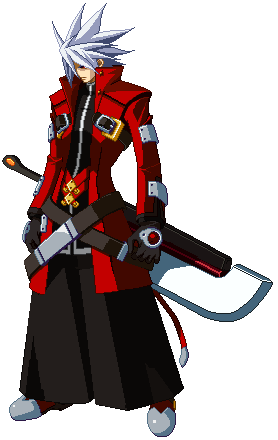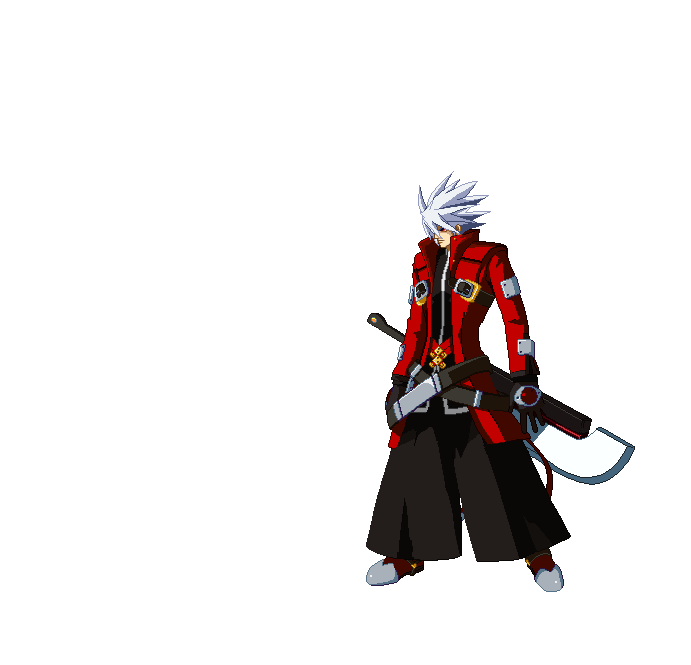Arc System Works makes great fighting games. To anyone familiar with the genre, that’s no surprise; the company kept making two dimensional fighting games long after they went out of vogue, and even after they lost the license (temporarily) to their flagship series, Guilty Gear. Because of this, they created a series that would, for a time, become their new standard bearer: Blazblue, harbinger of weird nonsensical titles and some of the weirdest fighting game mechanics this side of Suda51 (well, if he ever made fighting games, anyway!).
See, Blazblue seems intent to become massively popular with a certain demographic: anime nuts. Which, I think, is fine; every character fits into one anime stereotype or another, and while we could say it also throws more than a few fetishes into the mix, the roster isn’t entirely made of young girls below the age of 15. Rather, Blazblue would like to tell a story with its character, so it can also have its anime-storytelling cake while supplementing it with the game portion. Or, in my case, totally ignoring that story due to the primary way in which said story is presented: visual novels.
Look, I’m fine with new experiences in video games. Visual novels, to me, only work well for a certain group of people with the patience to read a lot of text in their video game or listen to English/Japanese voice actors prattle on about the story at hand. I am even fine with all the anime tropes in the world, piled on top of each other like a giant stack of precariously piled books just begging to tumble at any second. Still, when you force your audience to sit while pressing a button through cutscene after cutscene after cutscene of talking heads, it just gets exasperating. Also, unlocking a character behind this crap is poor form any way you slice it. I remember booting up Calamity Trigger, eager and excited to engage in its story mode, and I soon after found myself reeling at the horrendous pacing. Blazblue represents the worst possible ends of the oil and water approach – neither portion of the game, narrative and mechanics, ever touch each other in the slightest. Toshimichi Mori may have written the world’s greatest story, but there’s just nothing that appeals to me in its presentation.
Think about it for a second: video games are, in some sense, a visual medium. You don’t need to tell the story via interminable sequences of plot exposition where people just keep TALKING about things you don’t understand (in the latest iteration, Chrono Phantasma, even the “catch up” story sequences go on FOREVER). Rather, you use the fighting game format in an effective way to present characters, their motivations, and what’s happening. Blazblue looks great, and every character has a distinct personality when fighting and even in their neutral stance; it’s the kind of detail that sets Japanese games in a different field from their Western counterparts.
Take the protagonist, Ragna the Bloodedge (oh, Japan! Your silly naming conventions remain charming after all these years). How do you know he’s a disaffected, independent, rageful anti-hero, at least by anime standards? Simple: you take a good look at him:
 He looks like he just could not care less about his opponent or whatever “gets in his way”. He will kill it. Heck, he doesn’t even have his weapon at the ready. You will lose, and there’s no doubting that. In the end, he could care less about whatever until it impedes his progress towards whatever goal he had in mind. Even his attacks show a similar disinterest in the fighting.
He looks like he just could not care less about his opponent or whatever “gets in his way”. He will kill it. Heck, he doesn’t even have his weapon at the ready. You will lose, and there’s no doubting that. In the end, he could care less about whatever until it impedes his progress towards whatever goal he had in mind. Even his attacks show a similar disinterest in the fighting.
 Even so, his aggressive stance tells you that Ragna’s an all-or-nothing character, total offense. That he has no defensive measures except a sword should tell you enough. The character comes through in the animation and the fighting, not through some giant list of plot features and effects. It’s the simple nuances of the presentation that give you far more information about a character’s personality and traits without needing to delve into a giant Wikipedia-sized article about his history with ars magus or Azure Grimoires or SS-class rebels or whatever other nonsense the game throws at you (see, I learned SOME STUFF. I really tried!).
Even so, his aggressive stance tells you that Ragna’s an all-or-nothing character, total offense. That he has no defensive measures except a sword should tell you enough. The character comes through in the animation and the fighting, not through some giant list of plot features and effects. It’s the simple nuances of the presentation that give you far more information about a character’s personality and traits without needing to delve into a giant Wikipedia-sized article about his history with ars magus or Azure Grimoires or SS-class rebels or whatever other nonsense the game throws at you (see, I learned SOME STUFF. I really tried!).
And that goes for the game as well! Blazblue, for all intents and purposes, nails the fundamental fighting mechanics effectively. Each character feels unique, and the special Drive mechanic of each one ensures that they play totally different as well. That’s one of the reasons why learning a character in Blazblue remains so difficult: you have to change your frame of mind to get used to completely unique mechanics when you switch to new characters, obtain new nuances along the way. That expands the learning curve, sure, but that sense of familiarity gives you time to appreciate the finer points of the presentation.
It pains me when Blazblue refuses to play to its strengths with the story, though. As Shakespeare said, brevity is the soul of wit, and Blazblue’s got none of that wit. It does have heart, though, and the love in the final product comes in so many little details rather than the confusing whole. Even the Bible knows of brevity, which might seem surprising to us. As we know from John 21:
25 And there are also many other things which Jesus did, which if they *were written in detail, I suppose that even the world itself *would not contain the books that *would be written.
What we know are the important parts of the story, the parts God wanted us to know. We know of the essential history, the love and grace of Jesus Christ, and all that we need to live for Him. And yet, we often want to know things beyond our human scope, to know God’s will or the future that he has planned. There is a reason for this brevity – it lets us focus on the important details, to see what matters and exclude what does not. It lets us see the things that matter; God, thankfully, is a very good editor!
Also, any time I can write near a thousand words, I consider that a success!
